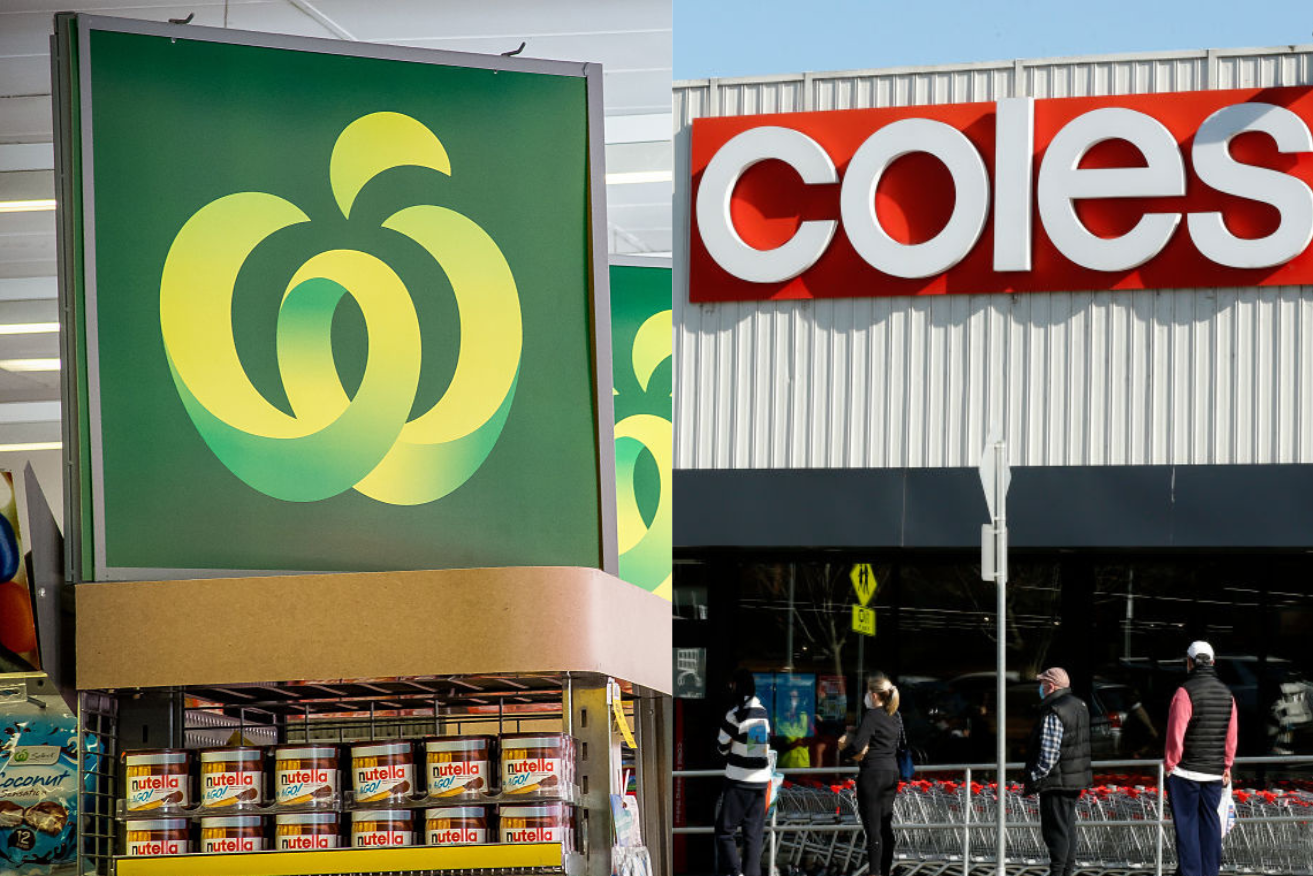Rate fears ease on inflation fall as supermarkets cop public anger over grocery prices


A probe into supermarket dealings with suppliers has been detailed in a new paper. Photo: Getty
Inflation for key grocery staples was easing heading into 2024, with a growing number of experts predicting the Reserve Bank will keep rates on ice amid encouraging signs on prices.
Figures published this week showed inflation was just 4.3 per cent in November as key consumer essentials like meat and seafood (0.2 per cent) and produce (0.7 per cent) eased.
Rabobank analyst Michael Harvey said there was a “silver lining for consumers” in the figures, with food price inflation moderating to 4.6 per cent from 5.3 per cent posted in October.
“The good news is there is less ‘sticker shock’ for consumers in these categories as well, with the rate of inflation also moderating and actually at the lowest level since mid-2022,” he said.
Economists said monthly price figures are, however, notoriously volatile – particularly for groceries – meaning all-important quarterly figures due in late January will provide better insight.
That data will also be key to the trajectory for interest rates, with the Reserve Bank set to decide whether to extend an interest rates pause at its first meeting of 2024 scheduled in February.
It comes as public anger over high prices for consumer staples like food drives renewed scrutiny towards major supermarkets Coles and Woolworths, which have copped criticism this week for the way in which higher food prices have been passed onto consumers over the past two years.
Ahead of several public inquiries into the major chains, Prime Minister Anthony Albanese teed off at supermarket executives on Wednesday, accusing them of failing Australian consumers.
“We know that when we have seen a reduction in the cost to supermarkets that hasn’t been passed on in an appropriate way to consumers,” Albanese said.
“We want to make sure that happens.”
Former Labor minister Craig Emerson will lead an inquiry into the way Coles and Woolworths treat their suppliers that will look at how costs are passed through from farms to shelves.
What went up and down: Food inflation eases
The good news is that analysts are now predicting grocery prices will continue easing in 2024, with Harvey saying agricultural commodities will remain at lower levels throughout the year.
The November inflation figures showed lamb prices fell 15.5 per cent annually, while beef was down 4.2 per cent and vegetables down 0.2 per cent.
Margins in the food supply chain are improving “downstream” for companies on the back of weaker commodity prices and easing food processing and distribution costs, Harvey explained.
“We are seeing a sharpened focus from food and beverage companies to tailor products to a value-conscious consumer, and this will be a key theme through 2024 as cost-of-living pressures continue to influence purchasing behaviour,” he said.
“We will get a deeper dive look into the food basket when December-quarter CPI results are released on January 31.”
Black Friday missing in monthly data
The December CPI will be vital for the trajectory of interest rates because it will combine readings on both goods and services inflation – something that’s lacking from monthly figures.
Of those two categories central bankers have been more concerned about services, with utilities, rents and personal services like hairdressing still running hot in late 2023.
Encouragingly, however, services inflation – which was captured in the November inflation data – was weaker than expected, sparking predictions the RBA will hold rates at its February meeting.
The household contents and services category was softer than expected, rising just 0.3 per cent, while recreation was also weaker than anticipated, up just 1 per cent over November.
Westpac senior economist Justin Smirk said the November figures captured a welcome easing in services prices but missed the effects of goods discounting associated with November shopping holidays like Black Friday.
“The mid-month does not include many household goods which are surveyed in the first month of the quarter, so the November survey would have missed some of the price declines associated with the Black Friday/Cyber Monday sales,” he said.








